The ex-commanding officer of a Japan-based Navy warship created a toxic work environment, ordered subordinates to locate his favorite soda and wasted taxpayer dollars on medals he wasn’t authorized to award, according to a recently released Naval Inspector General investigation.
Navy Times first reported the disastrous morale on board the guided-missile cruiser Shiloh under the command of Capt. Adam M. Aycock in 2017.
Command climate surveys revealed an exhausted, demoralized crew and a CO who used antiquated bread and water punishments on sailors.
Shipmates worried about the Shiloh’s safety and readiness, as well as its ability to shoot down a North Korean missile.
Navy Times did not receive the Aug. 8, 2017, IG investigation into Aycock until this week, more than two years after a Freedom of Information Act request was filed for the record.
The investigation backs up crew allegations from the command climate surveys previously published by Navy Times while offering troubling new insight into life on the Shiloh under Aycock.
RELATED
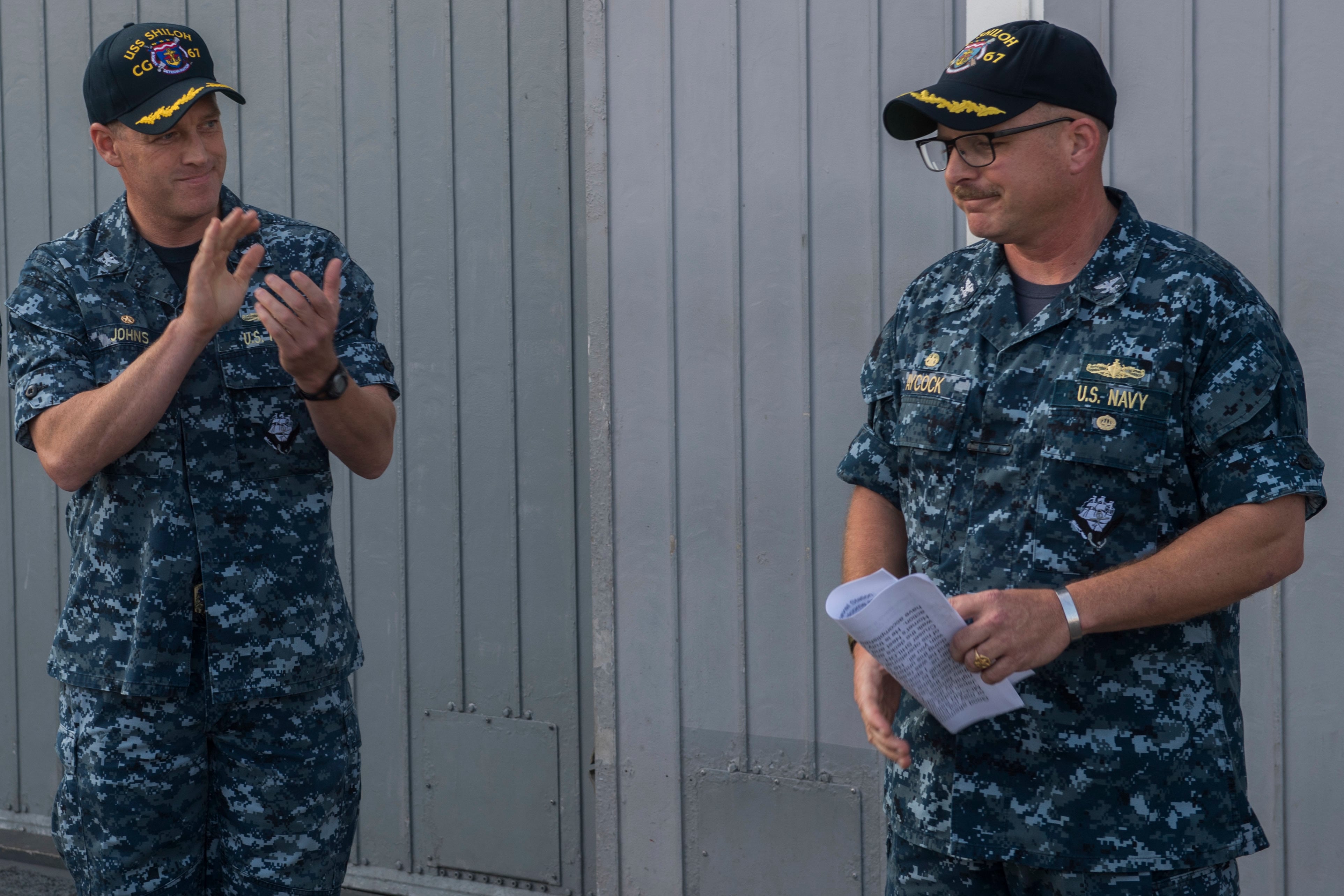
The Shiloh loomed into public view in June 2017, when sailor Peter Mims hid in the ship’s engineering spaces for a week, prompting a massive hunt for him at sea amid fears he fell overboard.
The report was completed about three weeks before Aycock departed the warship in a standard change-of-command ceremony on Aug. 30, 2017.
Aycock was then assigned to the Naval War College and retired in July.
Reached by phone this week, he declined comment.
The IG probe reveals Aycock’s superiors at Carrier Strike Group 5 were tracking the troubling morale trends detailed in the command climate surveys but they continued to work with him to address concerns rather than relieve him.
Even after a third dismal survey, Group 5 leaders stated that the Shiloh’s impressive performance trumped the rock-bottom morale of the crew that enabled that performance in the first place.
One of Aycock’s superiors — whose name is redacted in the investigation copy provided to Navy Times —stated that the Shiloh’s “impressive string of operational successes at sea” and other indicators “provide a countervailing indication of the command climate from the results of the command climate survey.”
Nevertheless, IG investigators determined Aycock “created a hostile work environment through abusive behavior” during his command of the Shiloh.
RELATED
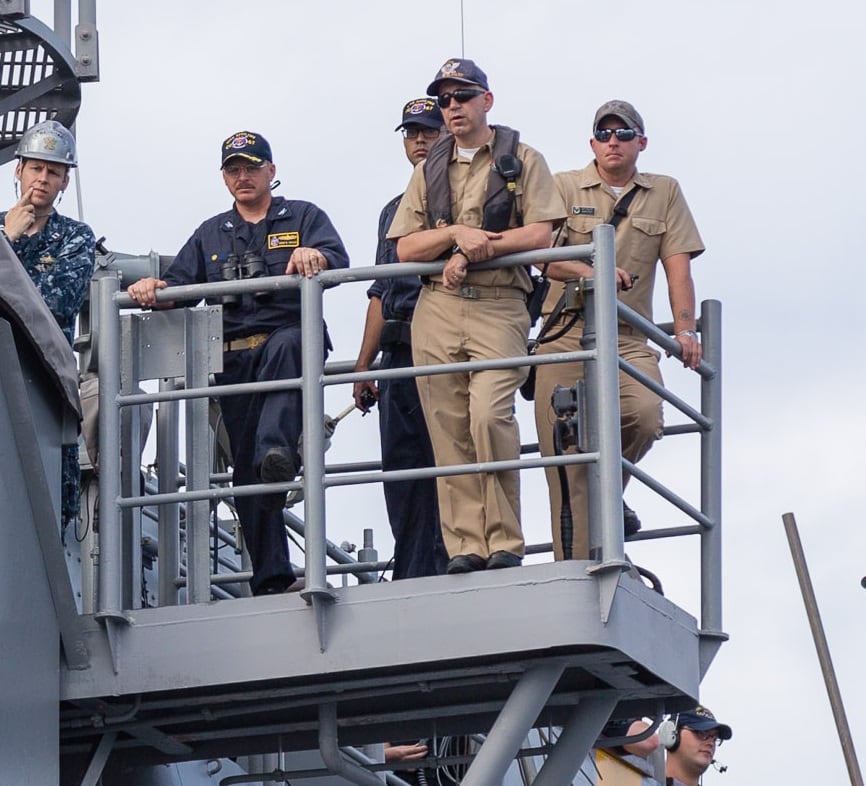
IG listed several reasons why morale reached low levels on board the warship, including Aycock’s orders to subordinates to spend “numerous man hours” hunting down “CAPT Aycock’s favorite soda, ‘Sun Drop,’ after both the Navy Exchange and Commissary in Yokosuka ceased to stock the soda.”
In fact, Aycock “was constantly pressuring” subordinates to score some Sun Drop.
“(Officers) took way too much time and effort and emotional investment in this one endeavor,” one crew member told IG. “We talked a lot about the Sun Drop issue.”
At one point, an officer involved in procuring Sun Drop had enough.
“We’ve exhausted our options on getting this one product because the CAPT said to,” the officer recalled. “Other than flying myself to California or to Tennessee in the south where you can get it and buy it and come back.”
The officer insisted no one else on board the warship even wanted it.
“I had suggestion box notes for tons of other things and Sun Drop was never one of those things,” the officer said. “It was just the CAPT.”
“While CAPT Aycock downplays his push to obtain an unnecessary beverage, it is apparent that he made this a priority for (one of his officers),” the investigator wrote. “If CAPT Aycock had accepted that the beverage was not carried in the Commissary or NEX the Supply personnel would not have continued to search for a way to procure the beverage and a complaint would never have been filed.”
While the Sun Drop imbroglio was not an egregious case of misusing a subordinate’s time, the investigator wrote that it was not an acceptable demand.
“Spending considerable time searching for an unnecessary beverage is not an official duty,” the investigator wrote.
That’s not the way Aycock remembered the quest for Sun Drop. He told IG that once his supply officer told him there was no Sun Drop to be found, “I stopped asking.”
“We have not had Sun Drop since,” he added.
The captain also said he never considered his subordinates’ inability to score Sun Drop a failure on their part.
“CAPT Aycock stated the crew requested Sun Drop in his CO’s suggestion box but when asked for the notes CAPT Aycock stated he had destroyed them all,” the investigator wrote.
RELATED
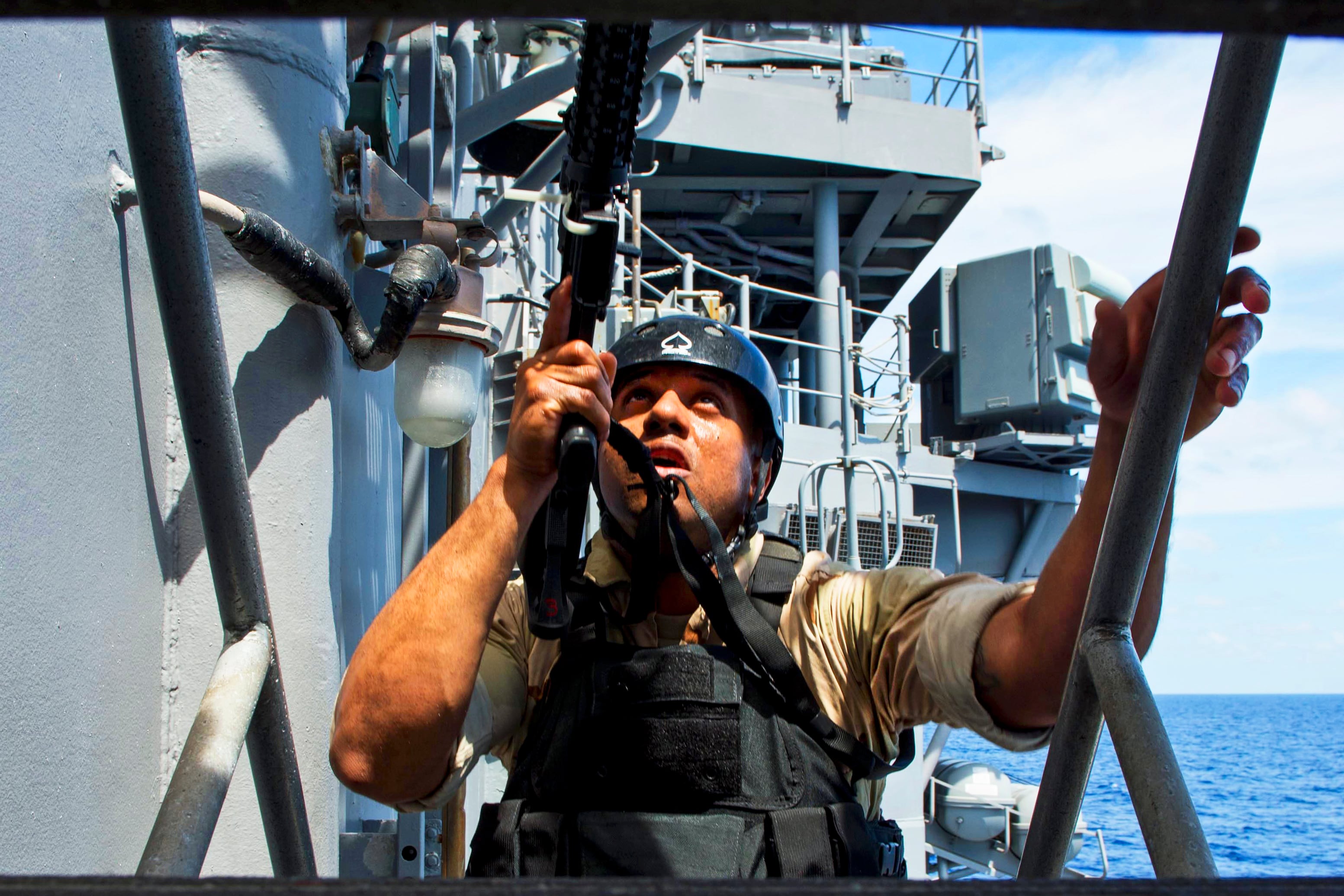
Aycock also ordered his subordinates to purchase 370 Korea Defense Service Medals and have them at the pier when the cruiser returned from an underway “so that the CO could get pictures of the crew being presented Korean Defense Medals by the CTF 70 Admiral.”
An officer told IG the command dipped into the ship’s operational funds to pay for the decorations.
“CAPT Aycock used the advice of someone not within his procurement chain of command to order his (supply officer) to purchase 370 Korean Defense Medals at a price of $3,330…which were never allowed to be awarded and still remain on the ship at the time of this investigation,” the report states.
Aycock countered that he reached out to the Fleet’s chief of staff instead of his direct bosses about the medals to make his superior’s job easier.
“The best of intentions do not matter when public revenue is spent by government officials,” the investigator wrote. “CAPT Aycock is working backwards in his procurement analysis. A government official gets permission to order and then purchases, he/she does not purchase and then wait for the permission.”
RELATED
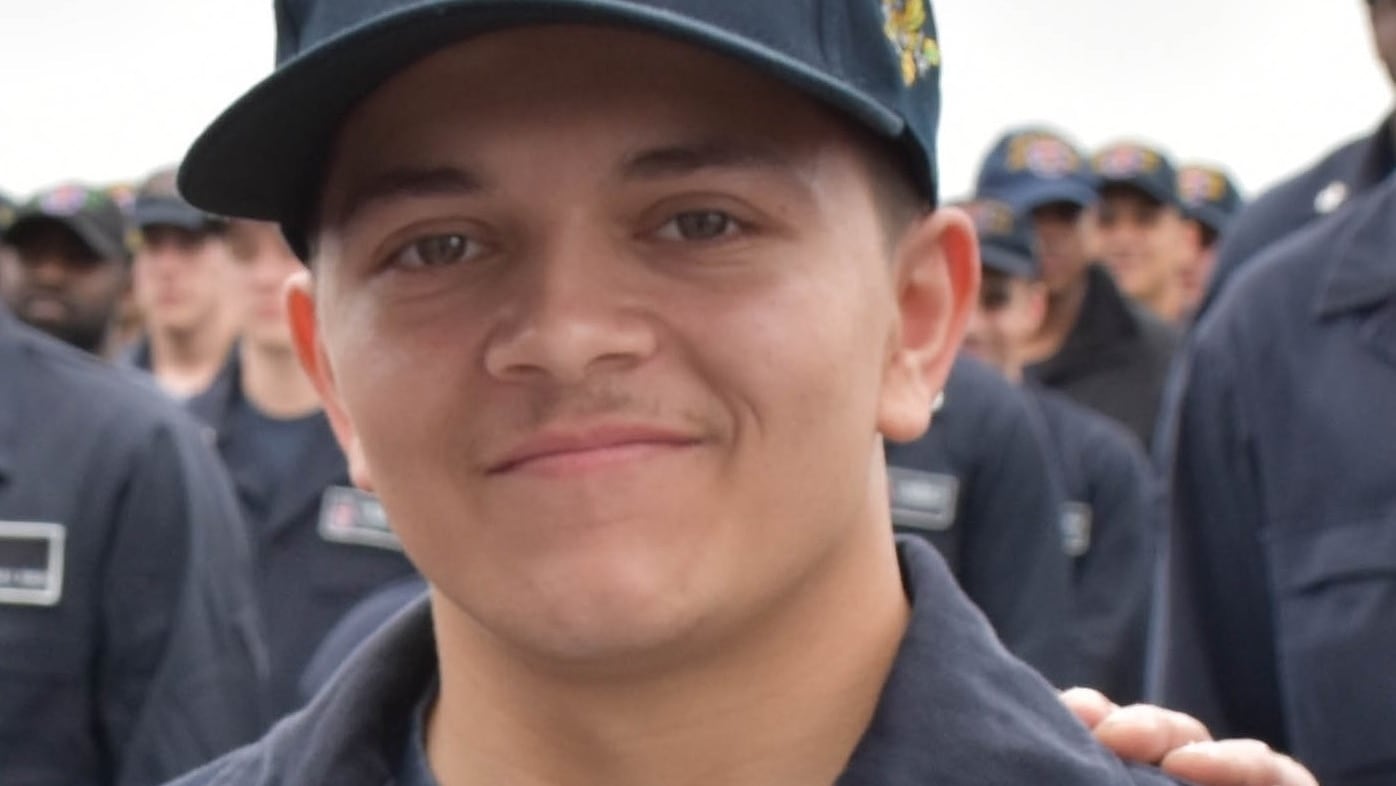
Some crew members declined to characterize Aycock as an abusive leader, offering instead that he had a “more demanding personality” than his predecessor, and that rubbed some crew members the wrong way, according to the report.
“This is a man whose wedding ring is a (Surface Warfare Officer) pin,” one sailor said.
But others took a less charitable view of their commanding officer.
One reported telling Aycock that some sailors were receiving mental health care but would soon return to duty.
“That’s okay,” Aycock replied. “There are plenty of Sailors lined up at recruiting districts. We can replace them if we need to get rid of them.”
The former crew member said he then glanced down at Aycock’s chest.
“I’ve been told it’s three sizes too small,” Aycock reportedly said, repeating a line from “The Grinch Who Stole Christmas.”
“So that’s what set the bar for me,” the officer told investigators.
Another shipmate recalled a time when Aycock “just ripped” into his department heads while they were underway for sea trials: “I think he said you all suck and you’re getting worse.”
That ripping became so bad that some junior officers called their operations and intelligence briefings before Aycock “shame roulette."
“You never know who’s just going to get demolished,” one officer said.
RELATED

Some sailors lived in fear that any error would become a career-killing incident.
“A pattern found during the investigation was that once on CAPT Aycock’s ‘bad side’ there was almost a Scarlet Letter in that the individual could do no right,” the investigator wrote.
“It wasn’t learn from it, next time do better or anything like that,” a former crew member added. “It was just…he put you on a list, you were done.”
“It’s hard to say that he truly did anything wrong, but his culture was awful,” the sailor continued. “I dropped 20, 25 pounds toward the end of my tour there…because of stress…it took me about three months to become myself again.”
That sailor noted Aycock’s proclivity for handing out an antiquated administrative punishment where junior sailors were sent to the brig and fed nothing but bread and water for three days.
Shipmates wrote in climate surveys that other crews along the Yokosuka waterfront dubbed them the “USS Bread and Water.”
One former crew member called Aycock “the most crooked by the book man I ever met.”
“Bread and water was on the books, it was in his toolbox to use,” the sailor said.
He would hold administrative disciplinary hearings, or Captain’s Masts, at midnight “so that way he could maximize the use of bread and water,” the sailor added.
“That, to me, seems ludicrous.”
The Navy has since banned the bread and water punishment.
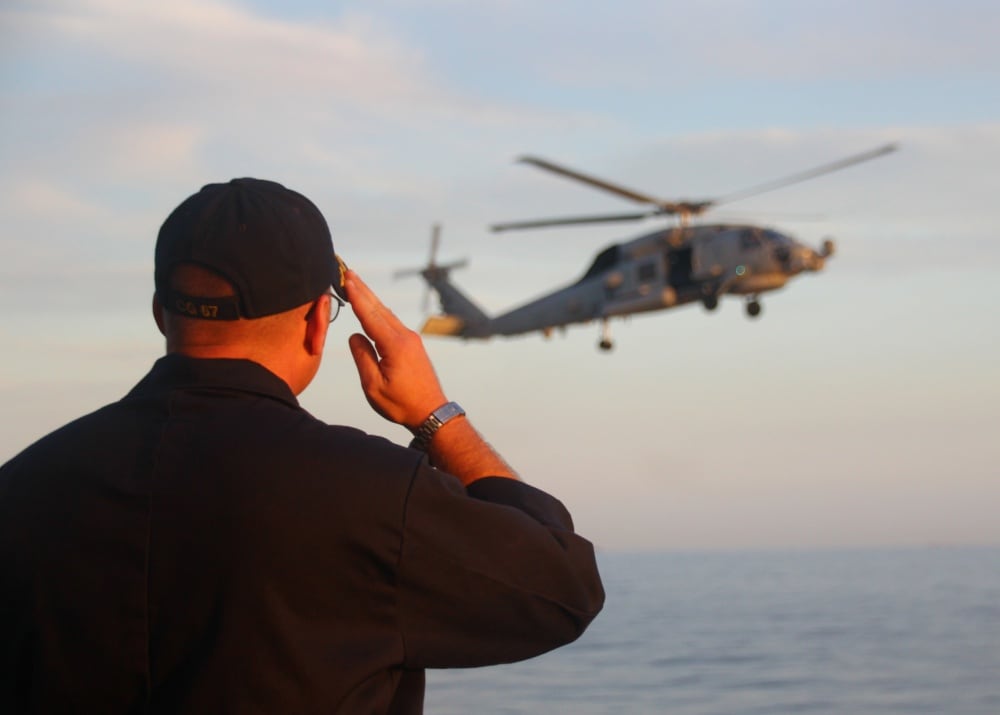
When presented with a Naval Surface Forces memo stating that his command climate surveys revealed an “overwhelmingly negative” tone throughout the assessments, Aycock disagreed and thought morale on his ship was better than that.
IG noted that such surveys are a time-tested way to gauge morale within a unit and there was no evidence “the morale is high or trending positive” on the warship.
Aycock pushed back on both the surveys and the validity of the complaints lodged against him.
“His only direct opposition to the allegation was, ‘Anonymous surveys…and complaints by privileged groups and individuals that do not perform and who were held accountable do not reflect the health and success…of the command,’” the investigator wrote.
IG warned that “CAPT Aycock’s cavalier disregard for (the command climate survey) results is additionally alarming.”
IG recommended the report be forwarded up Aycock’s chain of command “for corrective action” and asked Navy leaders to determine why the Shiloh’s troubling command climate survey results didn’t spark corrective actions by superiors.
Those findings were redacted in the report provided to Navy Times and it remains unclear what, if anything, the sea service did in the wake of the IG report.
RELATED
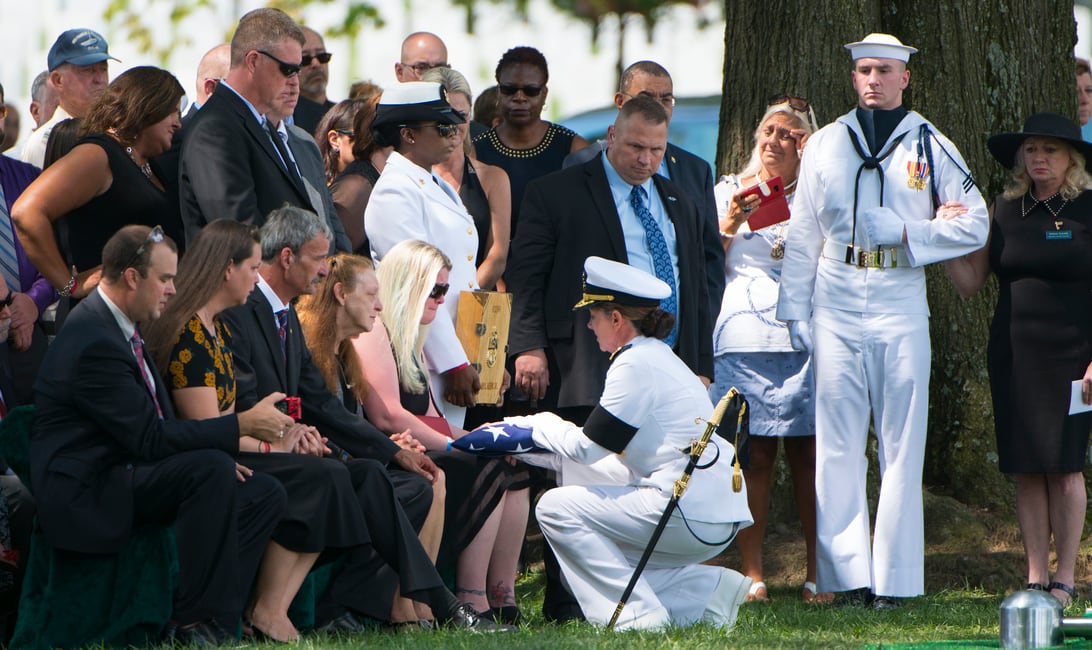
Echoing his unnamed superior in Japan, Aycock retorted that the crew’s complaints were "completely unsubstantiated when viewed in conjunction with the relevant context of all the positive indicators and successes and when considered with the myriad array of challenges SHILOH faced and excelled.”
Aycock told IG that his warship “excelled operationally, with the highest operational tempo among (forward-deployed) cruisers.”
But that didn’t sway the investigator, who wrote that “proof of abusive behavior is not refuted simply by stating that the operational commitments went well.”
“Hard treatment can produce impressive results but at what price to the workforce,” IG asked.
To some sailors, mission accomplishment on board the Shiloh always trumped crew welfare and created a dangerous model for junior officers to emulate.
“He would brag about sleeping two hours a night on average as a (department head),” one officer reported. “It was work harder, sleep less, what are you doing, you shouldn’t be eating, you have other things to do. So he came down really hard on his officers in the Ward Room"
Aycock countered by pointing to Shiloh’s positive retention and advancement rates, adding that at a previous command he was a finalist “for the coveted Stockdale Award.” .
Named for Medal of Honor recipient Vice Adm. James Bond Stockdale, the award honors officers who demonstrate outstanding leadership — both professionally and personally — and contribute to the improvement of leadership throughout the entire sea service.
“You do not receive such recognition as a tyrannical or oppressive leader,” Aycock wrote in his response to the report.
Geoff is the managing editor of Military Times, but he still loves writing stories. He covered Iraq and Afghanistan extensively and was a reporter at the Chicago Tribune. He welcomes any and all kinds of tips at geoffz@militarytimes.com.





